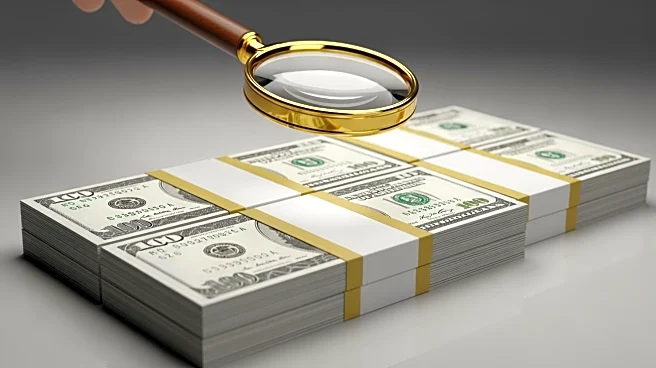What's Happening?
President Trump's proposal to distribute $2,000 checks to Americans using tariff revenue has raised concerns among economists. Experts argue that the revenue generated from tariffs may not be sufficient
to cover the proposed payments, which would require approximately $300 billion. The legality of the tariffs is under review by the Supreme Court, adding uncertainty to the plan. Critics highlight the potential impact on inflation and the national deficit, while proponents see it as a way to provide economic relief.
Why It's Important?
The proposal to use tariff revenue for rebates could have significant implications for U.S. economic policy and public finances. While it aims to provide financial relief to Americans, the feasibility of funding such rebates is uncertain, given the current tariff revenue. If implemented, this plan could increase the national deficit, as the rebate cost may surpass the revenue generated. Additionally, the Supreme Court's decision on the legality of these tariffs could affect their future use and the administration's ability to fund the rebates.
What's Next?
The Supreme Court's pending decision on the legality of the tariffs will be crucial. If the tariffs are deemed unlawful, businesses may be entitled to refunds, reducing the available funds for rebates. The administration may need to seek Congressional approval to implement the rebate plan, which could face political challenges. The potential impact on inflation and the national deficit will also be key considerations as the proposal progresses.
Beyond the Headlines
The proposal raises questions about the ethical and economic implications of using tariff revenue for direct payments to citizens. It highlights the tension between trade policy and domestic economic relief efforts, and the broader impact on international trade relations. The plan's potential to exacerbate inflation and increase the national deficit underscores the complexity of balancing short-term relief with long-term fiscal stability.










